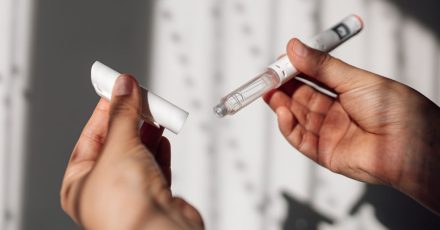A drug combination already used for metastatic prostate cancer appears to extend survival when given earlier to men whose cancer returned after surgery or radiation. Pairing the androgen receptor blocker enzalutamide with the hormone therapy leuprolide significantly improved overall survival in patients with high‑risk, biochemically recurrent prostate cancer.
The phase 3 EMBARK trial, funded by Pfizer Astellas Pharma and reported Oct. 19 in the New England Journal of Medicine and at the ESMO Congress, enrolled more than 1,000 patients at 244 sites in 17 countries. All participants had rapidly rising PSA after primary treatment, defined as a PSA doubling time of nine months or less—an indicator of high risk for developing metastatic disease.
Patients were randomized to leuprolide alone, enzalutamide alone, or the combination. After eight years of follow‑up, overall survival was 78.9% in the combination group versus 69.5% in the leuprolide‑only group, equal to a more than 40% reduction in the risk of death. Survival with enzalutamide alone did not differ significantly from leuprolide alone.
Investigators and outside experts view the results as part of a broader shift toward treating some men more aggressively earlier in the disease course to prevent metastasis and improve survival. But they stress caution: the benefit must be weighed against side effects and the potential for overtreatment.
The most common adverse effects with the combination were hot flashes and fatigue, with reported gynecomastia and nipple pain. Rates of falls and bone fractures were higher in the combination group, underscoring the need to balance benefit and harm when selecting patients for early intensified therapy.
A key limitation of EMBARK is that PSMA PET imaging—now widely used to detect small metastases—was not standard when the trial began. Some participants may have had undetected metastatic disease at enrollment, which could influence interpretation of who truly benefited from earlier combination therapy.
Investigators emphasize patient selection: earlier treatment can be beneficial for the right high‑risk patients, but not everyone with recurrent prostate cancer will need intensified therapy. Clinicians should discuss expected survival benefit, possible side effects, and the risk of overtreatment when considering enzalutamide plus leuprolide in biochemically recurrent, high‑risk disease.






